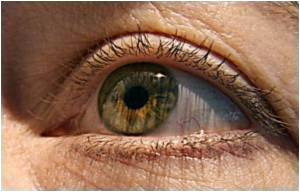Conservatives and liberals have different perceptions and now, research at the University of Nebraska-Lincoln claims, that they literally do see differently.

Liberals responded strongly to the prompts, consistently moving their attention in the direction suggested to them by a face on a computer screen. Conservatives, on the other hand, did not.
Why? Researchers suggested that conservatives' value on personal autonomy might make them less likely to be influenced by others, and therefore less responsive to the visual prompts.
"We thought that political temperament may moderate the magnitude of gaze-cuing effects, but we did not expect conservatives to be completely immune to these cues," said Michael Dodd, a UNL assistant professor of psychology and the lead author of the study.
Liberals may have followed the "gaze cues," meanwhile, because they tend to be more responsive to others, the study suggests.
"This study basically provides one more piece of evidence that liberals and conservatives perceive the world, and process information taken in from that world, in different ways," said Kevin Smith, UNL professor of political science and one of the study's authors. "Understanding exactly why people have such different political perspectives and where those differences come from may help us better understand the roots of a lot of political conflict."
Advertisement
Dodd said the participants were told that the gaze cues in the study did not predict where the target would appear, so there was no reason for participants to attend to them. "But the nature of social interaction tends to make it very difficult to ignore the cues, even when they're meaningless," he said.
Advertisement
Afterward, participants were surveyed on their beliefs on a range of political issues to establish their political ideology.
In addition to shedding light on the differences between the two political camps, researchers said the results add to growing indications that suggest biology plays a role determining one's political direction. Previous UNL research has delved into the physiology of political orientation, showing that those highly responsive to threatening images are likely to support defense spending, capital punishment, patriotism and the Iraq War.
Traditionally, political scientists have accounted for political differences purely in terms of environmental forces, but this study shows the potential role of cognitive biases – wherever they may come from – as a relevant area of future research.
"Getting things done in politics typically depends on competing viewpoints finding common ground," Smith said. "Our research is suggesting that's a lot tougher than it sounds, because the same piece of ground can look very different depending on which ideological hill you view it from."
Source-Eurekalert











